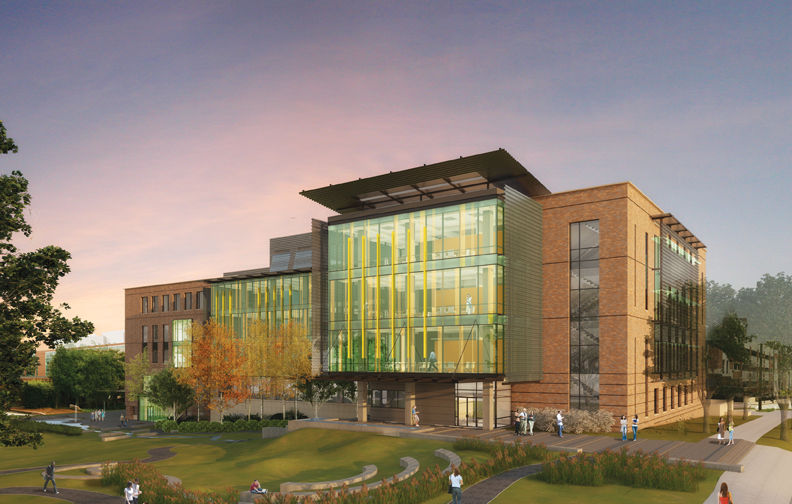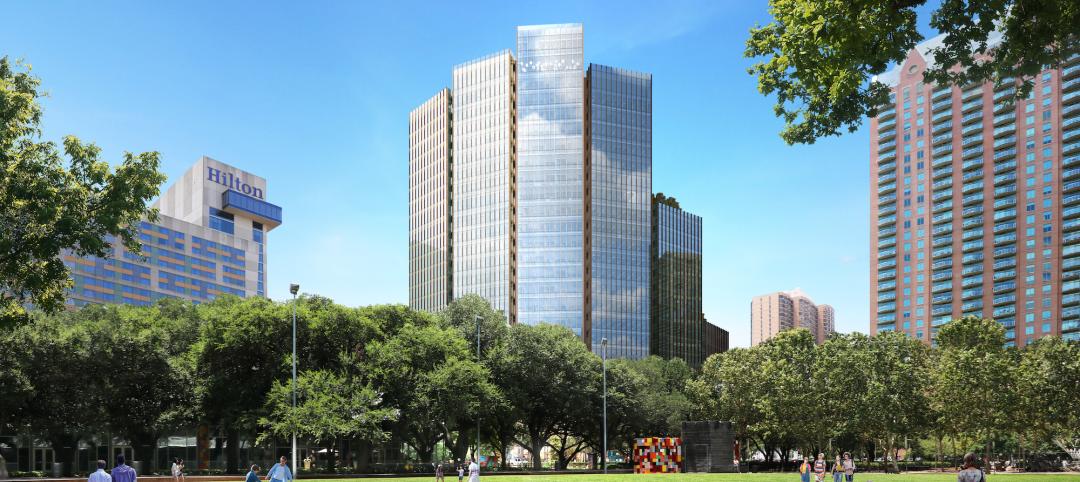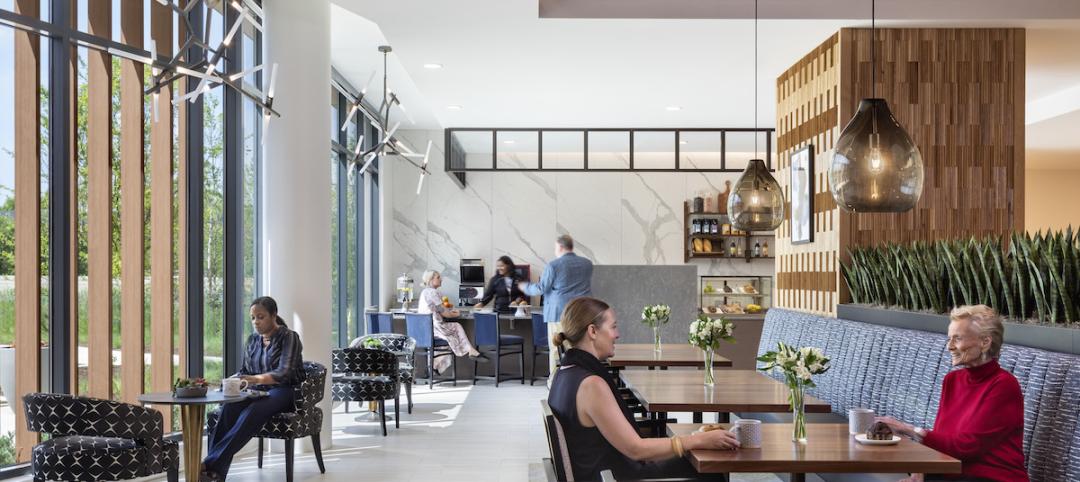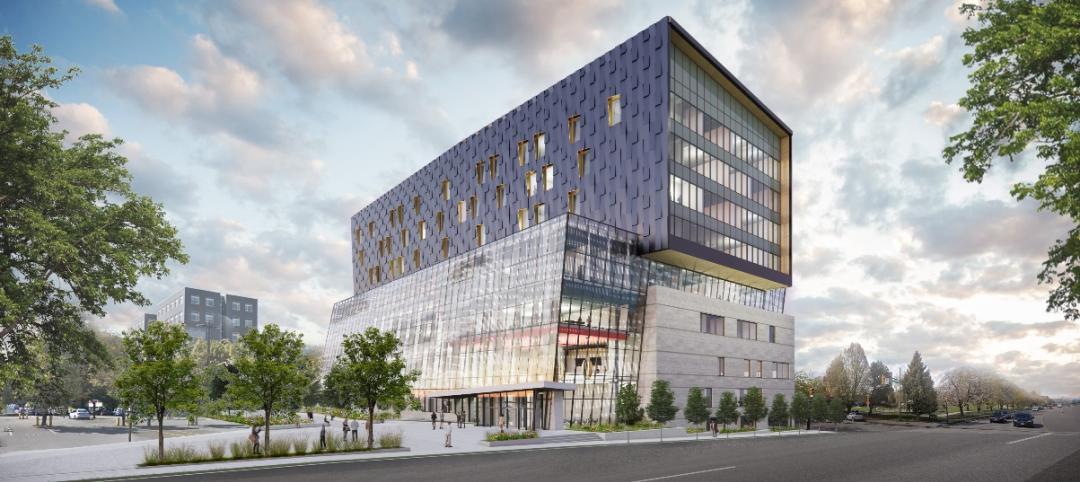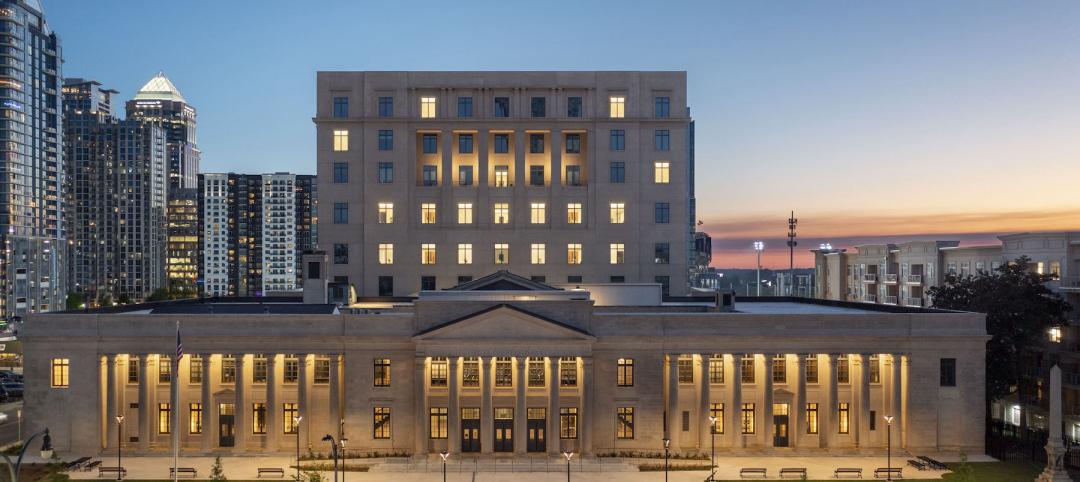Architecture firms are pursuing transparency and disclosure en route to achieving high sustainability ratings for their clients’ buildings.
“Transparency and healthy materials is one of the hottest topics in the green building industry,” says SERA Architecture’s Lisa Petterson, AIA, LC, LEED AP BD+C. “We are seeing more and more emphasis on actual rather than predicted performance.”
With partners Lucid and Enmetric, SERA is studying plug load use in its own Portland, Ore., office, to see how to save energy. A previous research project on water savings in actual projects led to regulatory changes in Oregon.
VOA Associates is developing post-occupancy surveys to collect building performance data. “This will help us understand human interaction on specific buildings and building types, to inform future projects and help us create better, healthier built environments,” says VOA Sustainability Leader Susan Heinking, AIA, NCARB, LEED AP O+M.
To get a better handle on real performance numbers, HDR Architecture has developed two metrics: the Sustainable Return on Investment (SROI), which computes a dollar-based measure of project goals in reducing energy, water, and waste; and the Sustainability-adjusted Life Cycle Cost Analysis (SLCCA), which evaluates the full cost of design decisions so that benchmarks can be developed for sustainable design decisions.
As a firm that does work all over the world, Gensler has to be attuned to many different climates; hence its use of design performance analysis software at the beginning of virtually all projects, says Kirsten Ritchie, PE, LEED AP O+M, the firm’s Sustainable Design Director. “We develop early conceptual designs and use building simulation software to measure design impacts on energy, carbon, water, and daylight,” she says. “This enables us to make design decisions that ‘tune’ our building performance.”
Firms are finding, however, that energy modeling, while usually helpful, is not an end in itself. “It narrows the universe of options really quickly and helps us make the right moves as early [in design] as possible,” says Heather Holdridge, Assoc. AIA, EIT, LEED AP BD+C, Sustainability Coordinator with Lake|Flato Architects. “It helps us to set some clear goals early in the process.”
At Cannon Design, project teams have a proprietary design tool at their fingertips—it’s called Material LIFE—that enables them to compare construction systems and materials from cradle to gate. According to Sustainability Director Rand Ekman, AIA, LEED Fellow, this process allows designers to choose materials that not only reduce global energy use but also have a positive life cycle impact.
MINING FOR PRECIOUS GOLD—AND MORE
More and more architecture firms are pushing higher and higher on the sustainability ladder.
For example, PGAL has executed numerous high-LEED projects in recent years: the net-zero-ready Bachelor Enlisted Quarters at Marine Corps Air Ground Combat Center, Twentynine Palms, Calif., awaiting Platinum certification; Gold-certified Innovation Village Apartments at Florida Atlantic University; the $42 million U.S. Federal Courthouse, Fort Pierce, Fla., awaiting Gold certification; and two transport projects seeking LEED Gold—the Consolidated Rental Car Facility at Boston’s Logan International Airport and the Regional Intermodal Transit Center at Bob Hope Airport, Burbank, Calif.
Globetrotting firm RTKL recently earned LEED Gold for the Mirdif City Centre, a 230,000-sf mall with parking for 7,000 cars, in Dubai. Another LEED project, the 135,000-sf Mall of Egypt, in Cairo, was also completed for client Majid Al Futtaim Properties. Closer to home, RTKL gained LEED Gold for the 21,000-sf White Oak Wonders, a child care center on the campus of the Food and Drug Administration headquarters in White Oak, Md.
WD Partners, a leader in green retail design, emphasizes the ongoing investment value of sustainability to clients like grocers Whole Foods, Price Chopper, and Fresh & Easy. The firm collaborated with UTC Power on the installation of a 400-kW fuel cell at a Stop & Shop in East Torrington, Conn., that provides 95% of the store’s electrical needs; the store’s total utility bills have been trimmed in half in the last two years.
WD Partners has also contracted with the U.S. Energy Department’s Pacific Northwest National Lab to develop the next-generation Home Depot retail outlet—one that will cut energy use 50%.
Design firms are also widening their green service capabilities. Atkins has launched a retro-commissioning business, based in Fort Myers, Fla., to capture some of the potential $1.8 billion that Pike Research projects will propel the retro-Cx market by 2014.
Firms are also stretching their goals. Net-zero energy is no longer the impossible dream, as the Health Professions & Student Services Building at North Shore Community College, Danvers, Mass., demonstrates
The three-story, LEED Gold building uses a 50-well geothermal system, chilled beams, and a tight building envelope to reduce energy consumption, and roof-mounted PVs to generate the power needed to make the building net-zero for energy. DiMella Shaffer Associates (designer) and Walsh Brothers (CM) headed the team.
On the green horizon: PNC Bank Headquarters, under design by Gensler and Buro Happold (SE, MEP, modeling consultant). The client for this $400 million, 800,000-sf tower, PNC’s Gary Saulson, has publicly defined his “modest” demands—to make it the “greenest high-rise building in the world,” with the lowest predicted energy use intensity. We’ll find out how well the Building Team did to meet these goals in about three years. +
Related Stories
MFPRO+ New Projects | Aug 10, 2023
Atlanta’s Old Fourth Ward gets a 21-story, 162-unit multifamily residential building
East of downtown Atlanta, a new residential building called Signal House will provide the city with 162 units ranging from one to three bedrooms. Located on the Atlanta BeltLine, a former railway corridor, the 21-story building is part of the latest phase of Ponce City Market, a onetime Sears building and now a mixed-use complex.
Office Buildings | Aug 10, 2023
Bjarke Ingels Group and Skanska to deliver 1550 on the Green, one of the most sustainable buildings in Texas
In downtown Houston, Skanska USA’s 1550 on the Green, a 28-story, 375,000-sf office tower, aims to be one of Texas’ most sustainable buildings. The $225 million project has deployed various sustainable building materials, such as less carbon-intensive cement, to target 60% reduced embodied carbon.
Senior Living Design | Aug 7, 2023
Putting 9 senior living market trends into perspective
Brad Perkins, FAIA, a veteran of more than four decades in the planning and design of senior living communities, looks at where the market is heading in the immediate future.
University Buildings | Aug 7, 2023
Eight-story Vancouver Community College building dedicated to clean energy, electric vehicle education
The Centre for Clean Energy and Automotive Innovation, to be designed by Stantec, will house classrooms, labs, a library and learning center, an Indigenous gathering space, administrative offices, and multiple collaborative learning spaces.
Green | Aug 7, 2023
Rooftop photovoltaic panels credited with propelling solar energy output to record high
Solar provided a record-high 7.3% of U.S. electrical generation in May, “driven in large part by growth in ‘estimated’ small-scale (e.g., rooftop) solar PV whose output increased by 25.6% and accounted for nearly a third (31.9%) of total solar production,” according to a report by the U.S. Energy Information Administration.
Resiliency | Aug 7, 2023
Creative ways cities are seeking to beat urban heat gain
As temperatures in many areas hit record highs this summer, cities around the world are turning to creative solutions to cope with the heat. Here are several creative ways cities are seeking to beat urban heat gain.
Government Buildings | Aug 7, 2023
Nearly $1 billion earmarked for energy efficiency upgrades to federal buildings
The U.S. General Services Administration (GSA) recently announced plans to use $975 million in Inflation Reduction Act funding for energy efficiency and clean energy upgrades to federal buildings across the country. The investment will impact about 40 million sf, or about 20% of GSA’s federal buildings portfolio.
Government Buildings | Aug 2, 2023
A historic courthouse in Charlotte is updated and expanded by Robert A.M. Stern Architects
Robert A.M. Stern Architects’ design retains the original building’s look and presence.
Hotel Facilities | Aug 2, 2023
Top 5 markets for hotel construction
According to the United States Construction Pipeline Trend Report by Lodging Econometrics (LE) for Q2 2023, the five markets with the largest hotel construction pipelines are Dallas with a record-high 184 projects/21,501 rooms, Atlanta with 141 projects/17,993 rooms, Phoenix with 119 projects/16,107 rooms, Nashville with 116 projects/15,346 rooms, and Los Angeles with 112 projects/17,797 rooms.
Market Data | Aug 1, 2023
Nonresidential construction spending increases slightly in June
National nonresidential construction spending increased 0.1% in June, according to an Associated Builders and Contractors analysis of data published today by the U.S. Census Bureau. Spending is up 18% over the past 12 months. On a seasonally adjusted annualized basis, nonresidential spending totaled $1.07 trillion in June.


